The first time I read about Sir Martin Amis (1949-2023, British) was in a 1991 GQ column[1] pitting his then current novel, “Time’s Arrow”, against Will Self’s short story collection, “The Quantity Theory of Insanity”. Both writers went on to have storybook careers, but I was most drawn to Amis’s darkly comedic prose. Anyone who could title a novel “Dead Babies” and make it hilarious had my vote. Prior to his untimely death from esophageal cancer in 2023, Amis published fifteen novels, six short story collections, and eight works of non-fiction. Decades after first reading him, I find myself a professional writer (not even close to Amis’s stratum) … and still a fifty-year-old fanboy suffering intermittent imposter’s syndrome. In hindsight, the symptoms were obvious: comparing my plots and characters to Amis’s caused the acid to fizz out of control in my gut, the cold sweat of anxiety prickled my lower back like errant cacti, and the certainty that my writing wasn’t fit for use as Amis’s toilet paper hit me like an acme anvil. I was like a schoolgirl losing her shit at her first rock concert. Overwhelmed, I often talked myself out of writing. The days I did put pen to paper; I found myself echoing the back covers of his novels – I practically rewrote “Money” in my own voice before I realized what was happening!
Amis’s fiction was more intimidating than his other books – even when he resorted to despicable English tricks like using straw man characters, omitting entire chapters for ambiguity, waxing poetic about the universe, and cliche plot twists. Not everyone can be perfect. While he might have been lauded by the British literati, his prose was surely too dense for most of the English-reading world. From “The Rachel Papers” onward, Martin Amis’s body of fiction serves as some of the most densely, penetrative writing about human nature published since Joyce or Proust. At the very least, in my early years, Amis’s writing helped me understand myself, other people, and the way the universe clocked neither for nor against me. He was the cynical psychologist with a chaotic edge that I longed to instruct me at college. As an ex-alcoholic might fall off the wagon after a single drink, I daresay the same thing is true of reading an Amis novel. One will certainly lead to two – so long as you’re not too humorless and can read between the lyrical lines. Even as his novels intimidated me into thinking I wasn’t a “real” writer, they made me want to learn to tell my own stories in a style approximating Amis’s – or at least to find my own voice. When I heard his authoritarian roar in my head, he was usually berating me for lack of discipline. “Stop whining and write!” For me, he was both silent inspiration and fierce critic. I wondered if his own father, Kingsley Amis, also a writer and novelist of some repute, had a hand in his success. Was Marty a nepo baby? After reading “Everyday Drinking”, I knew Martin was his father’s son and a legit writer in his own right. There’s no faking or even emulating Amis’s style. I could only learn from it, which removed some of the pressure bearing down on me from my ego. The imposter’s syndrome began to dissipate.

Then “The Rachel Papers” showed me that I had been ignoring an entire perspective: hers. Specifically, while suffering the end of my first love in college, I did a post-mortem on the relationship and found that had I paid more attention, I would have understood the girl better. Not that we would be together today. We would still break up, but the timing of the lesson was uncanny. That’s one reason Amis so insightful. He makes readers imagine things in his writing that aren’t even there. Like everyone else, I see what I want to see. And no, I’m not talking subtext. I think Amis was an untrustworthy writer, becoming the dirty protagonists of his stories to add a fourth dimension – the reader as a passive subject, possibly even the victim. Perhaps not every reader was provoked into self-examination. Damn it, I didn’t want to be Charles Highway (narrator of “The Rachel Papers”)! The closer Amis examined Highway, the more of a fraud I saw in myself. Amis was writing about my unworldly capacity for acting the prick and ignoring the obvious. He knew what I was really thinking. About my parents. My politics. My quasi-bougie dreams of growing up to be a wealthy and highly feted novelist. Where and how had Amis gotten his information?
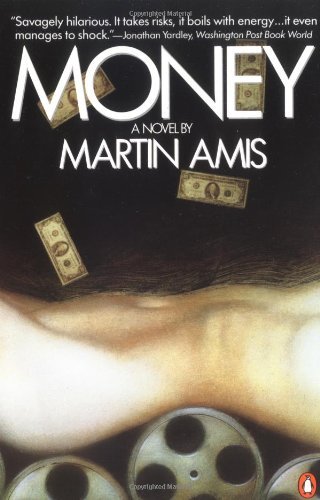
The primary theme of Amis’s 1995 novel, “The Information”, is envy – the jealousy of one novelist for another. The two authors happened to have been besties since they roomed together at university, but one quickly found success while the other was published but never really understood by readers. Literary envy, success, failure, and friendship are thorny themes but also in perfect pitch with my own thoughts at that moment in time. I was working as an advertising writer, not what I considered to be a real writer. My writer friends graduated from advertising and went on to publishing in national magazines like Spin and National Geographic. One had started a magazine. Another even had a good shot at getting her screenplay in the door at Pixar. I was well-acquainted with writer envy. This was more than that – imposter’s syndrome made me want to close my laptop forever. Throughout “The Information”, Amis digresses into lengthy paragraphs on the beauty of intergalactic space, finding either comfort or terror in the incalculable sizes, innumerable colors, and the potential species spread across trillions of light years. Within these digressions, I believe his true, and daunting, meta-meaning can be found. These observations helped free me from imposter’s syndrome. A universe constantly expanding and evolving new life forms has much more important business than concerning itself over my chaotic psyche, over a single life form.
Does a single human matter when there are 1.5 billion insects on the planet for every one of us? What does any one person – let alone a solo planet – matter in a galaxy filled with trillions of stars gestating, shining incandescent for human infinity, then perishing in spectacular supernovae, sending gases and heavy metals into the universe beyond, before gravity causes it to collapse in on itself and become a black hole. Then there were the millions of light years, the expanses, between galaxies. Were they pure space or dark matter galore? Were there rogue planets headed our way? Thanks to Edwin Hubble, there are too many galaxies to even count in a single image. Assuming each galaxy rotated several trillion solar systems, many with binary siblings or black holes, innumerable planets, moons, and asteroids – imbuing each with only a single species – humans still faced an arduous task. How can we be heard in a sea of uncountable voices in an immeasurably vast space? Even if was possible, English probably wouldn’t be their native tongue. The message behind “The Information”, if I may hazard a guess, is that writers – and humans in general – are not the center of the universe and, in this scheme, what anyone published or not didn’t count for a hill of beans. We’re all specs of stardust thrown together and illuminated to the ways of the universe at large; one day, one page at a time.
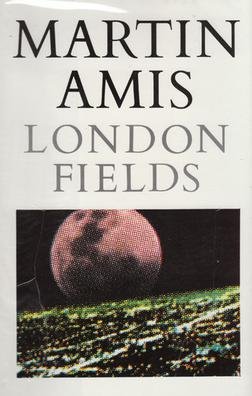
Which brings us to “Money”, a coup de grace for Amis as one of the most lauded of the London Trilogy (London Fields, Money, and The Information). Here, we meet John Self (no relation to Will), an advertising commercial director who wants to be a movie director and is willing to sell his soul to make it happen. At the top of one of London’s most superficial trades, Self is hyper aware of money and its all-consuming role in his life. Nothing he purchases can satisfy his appetites: drink, dope, sex, food, not his own film directorial debut. Alas, not even the love of his own family. I saw myself in John Self, as I imagine many advertising creatives might. These writers, art directors, graphic artists, and producers are so imaginative and good at selling product with their artistic magic, that it’s incredibly competitive within agency creative departments. Outside, you only had slightly better odds of getting a lucrative gig in an ad agency than of achieving an analog position in Hollywood. You’re only as brilliant as your last commercial. How many of us would make Faustian bargains to become more or better than we already are, to gain some notoriety or a wee bit of fame?
Given his father’s fame as an author and cocktail columnist,[2] I imagined Kingsley nurtured little Martin in the ways of writing great copy and celebrity living while Mother Nature worked her magic on his DNA, double-teaming the budding writer with the gift of insight so deep they made people around him uncomfortable. With twenty novels under his belt, including the classic satire, “Lucky Jim”, Kingsley Amis was a celebrated writer in the twentieth century, but he did not reach the literary heights of his progeny. Alas, his only books still in print are Lucky Jim and a collection of his “drinks” column in The Daily Telegraph. “Everyday Drinking”, which compiles Amis’s collection of newspaper columns on cocktails, ensures Amis Senior’s own legacy will be a book hiding behind the cash register in every pub in England. This isn’t your typical dry book of drink recipes, although recipes are included in every chapter, but writing that discusses matters of global important to every culture: hangover cures, the boozing man’s diet, alcohol and your interior, and many other comically inspired topics. When his son Martin published his first novel at twenty-four, he gave the impression of happily picking up the writing business where his father left off. When asked about being Kingsly’s son, Martin joked, it was “just like taking over the family pub.[3]”
But how did he manage to know so much about me, specifically, personally? The same way he set up and tore down the cognitive veneer for his readers: he inserted his own flawed persona into his books, sometimes openly narrating multiple characters, some more true to life than others; they were collectively segments of Martin Amis, warts and all. The man packed an incredible sense of empathy into his laptop bag.
I gathered a sense of compulsiveness from his writing as well. Even if it is edited to death post-first draft. He put the spotlight on the grotesque so that we recognized those horrible tendencies within ourselves. Does that make us more human and less monster? Why can’t writers turn away from this mirror? Why must we bear witness to every silly little accident in the universe and infuse it with our own meaning as if the solar system revolved around us? Secretly hoping that the experience helps us tell better stories than our peers. We can’t stop ourselves. We’re only human and sometimes barely even that, making us cosmologically smaller than the tiny red dot in the night sky.
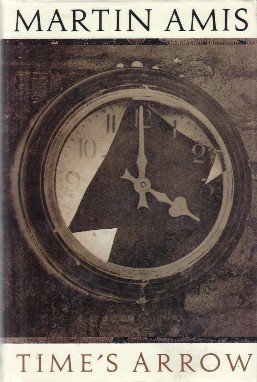
Amis’s characters are beyond human; they absorb and suffer every infinitesimal slight and overheard comment as if it were a punch in the face from a heavyweight champion boxer. While their fear knew no depths, their desires had no ceiling. They are either utterly terrorized or heroic in a cooly British, stiff upper lip style. The characters have a human silhouette, but too many motivational and moral blanks remain unfilled. Take Keith in “Dead Babies”. Despite his superficial introduction as pitifully grotesque with elephantine satchel bags of fat under his arms, incurable acne the size of barnacles, and the personality of a dead ox, he takes no umbrage when others make light of his compounded deficiencies. Yet, Keith’s motivation belies his looks and the awful depression he wears around his neck like a one-hundred-pound cape. Keith, acutely aware of the man in the mirror, has the urge not to pity procreate but to fuck down and dirty. Yes, his personal motivation is sex. And we all know what comes after the little death…because no matter what we look like, chances are good you’re well past your first time in the sack.
Amis presses forward, pinpointing the psychological flaws and forces the reader to comprehend the character – and themselves – in a more intimate, compassionate way. Depending on the reader’s capacity for empathy. Pressing through Amis’s dense paragraphs felt like slogging through a bad middle school dance where the students were only developing secondary sex characteristics and were clueless how to wield them to a Lionel Ritchie song. Other times, Amis provides a psychotic provocateur to act as tour guide as he leads his characters toward extinction. Such as Nicola Six in “London Fields” winding up her two suiters: Keith Talent or Guy Clinch. Even the good guy is a villain because he’s an unwanted bore. Amis devised ugly profiles for many of his characters because that’s how he found interesting, multi-layered people in real life. Ultimately, I think it comes down to the old 80-20 rule. Amis’s characters were 80% human and 20% pure genius straight outta the imagination of the author, they’re each chemical algorithms designed to integrate in a multitude of ways. Their tragic flaws make them relatable and memorable. Amis goes so far as to take readers down a peg, forcing us to resurrect ye olde twenty-pound, paper dictionary to uncover the meaning of the words behind his uber-British vocabulary.
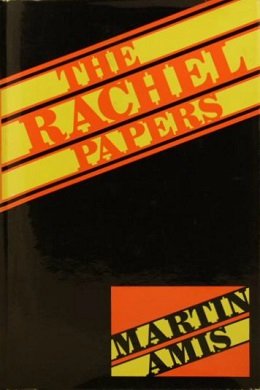
A character is never merely an individual in an Amis novel but representative of an entire cast of iconoclastic class of people selected for their eccentricities, class status, pop cultural relevance, and knee-jerk opinions; for their blackest desires, their kinkiest drives, most wicked economic proclivities, and over-the-top classist snobbery; to say nothing of their physicality. Each character is described down to the molecule, they bear no resemblance to actual people, but humanity at its extreme, as seen from the perspective of a funhouse mirror. Said physical descriptions tend to reinforce cultural stereotypes but also give each character a singular goal. Consider Mary Lamb of “Other People”. Waking alone in a hospital with no memories, she must negotiate a variety of people who threaten, befriend, violate, and mislead her. Only through her investigation does she realize her real name is Amy Hide, a nom de plume synonymous with an outer layer of skin, which she sheds as easily and often as she pleases. Ecdysis occurring as naturally as it would in any rattlesnake.
Speaking of names, Amis had his way with them. He violated the unspoken writer’s tenant of never naming a character after their primary distinction or profession. Some words just don’t sound like names. When Mary Lamb awakes, her innocence shines through her surname. By trading up for her original, she opts for a name that sounds like it will protect her from a dark world filled with selfish, nasty, and, worst of all, other people. All wanting something from her. There is a line from “London Fields” that seems to describe the occupation of most of Amis’s characters, “Death gives us something to do. Because it’s a full-time job looking the other way.” His more obvious names include the aforementioned John Self, Mary Lamb, and Charles Highway but also villains such as…Nicola Six, Guy Clinch and Paul Doll to list a handful.
I enjoyed Amis’s prose for the next thirty years and determined that he had a better handle on the inner workings of the human mind than the world’s top neuropsychologists. (I should know, I used to write presentations for one of them).
Looking over my desk, I spot “Everyday Drinking” and opened it to a random page. I landed on the chapter about Scotch. Kingsley had this to say, “Scotch whisky is a great, enormous subject. To expect me to cover it all in one article would be like asking the dramatic critic to put all his thoughts on Shakespeare in a couple of half-post columns of print.”[4] I feel much the same about attempting to condense the life, works, and media bites of a writing genius. Who am I to write about an author at the top of the pantheon after he was so rudely removed? I’m feeling the imposter syndrome just beneath my skin.
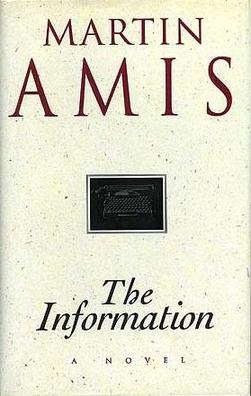
The legacy of Martin Amis will be more than his books, it will be inspiring thousands of writers, to say nothing of the admiration of his readers. Many of us will become better writers simply by working harder at our craft because reading Amis made us feel outclassed. He’s one of the few authors with the storytelling ability to harness the zeitgeist to the banal to make their fiction accessible and relatable to all types of people, should they care to heft the dictionary and read one of his books – his vocabulary was preternatural. Amis was always a writer more given to wordplay than spiritual meandering. “If God existed, and if He cared for humankind, He would never have given us religion,” he once said. Which leaves his friends, family and readers to contemplate his long shadow.[5]
Which is just another reason why, a little over two years after his death, his words still haunt me. What did he know about me that I didn’t? The same thing that will make his name one of the largest in literature for centuries to come. He was a genius-level writer, Swiftian satirist (Jonathan, not Taylor), black humorist extraordinaire, who spoke with such authority on his subject matter that one could only conclude he held multiple upper-level degrees. Or is it something simpler that makes the works of Martin Amis reveal the full spectrum of human nature? “I’m not subtle; I like extremes,” he said in one interview. “Someone once said of my work … that I deal with banalities delivered with tremendous force,” adding (a little unconvincingly): “That’s fine by me.”[6] No, it’s more than that. Like the artists and musicians who appeal to us for a variety of reasons, Martin Amis has an easy analog to his legacy to put it in perspective. Special thanks to Geoff Dyer for coining him, “the Mick Jagger of literature.”
Somehow, that makes perfect sense of everything. As when The Stones played, people danced. When Martin wrote, the world put on its reading glasses. Stay tuned for any potential greatness from yours truly….
Drew Bufalini has been writing professionally for roughly two hundred years. Mostly as an advertising copywriter. He has imagined, and brought to life, campaigns for many well-known national brands (portfolio: www.drewbufalini.com). He has published short fiction in Freedom Fiction Journal, Bristol Noir, Literary Heist, Gargoyle Magazine, A Thin Slice of Anxiety, Literary Yard, Aoide Magazine, and Close to the Bone among others. He recently completed his first novel and is on the prowl for an agent. Drew lives with his wife and crazy puppies outside of Ann Arbor, Michigan.
- This was pre-internet and, for the life of me, I can’t find the article or its author to give them the credit they so richly reserved. ↑
- For evidence, read his definitive “Everyday Drinking.” You’ll also pick up some quirky cocktail recipes ↑
- https://www.theguardian.com/books/2023/may/20/martin-amis-he-stamped-his-style-over-a-generation-of-writers-and-readers ↑
- Everyday Drinking, Kingsley Amis, Bloomsbury, p. 224 ↑
- https://www.thetimes.com/uk/arts/article/timid-humourless-insecure-literatures-year-without-martin-amis-gspq0gll2 ↑
- https://culturall.io/the-mick-jagger-of-literature-martin-amis-1949-2023/ ↑



